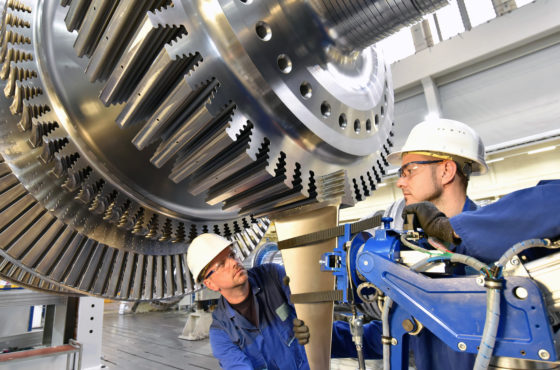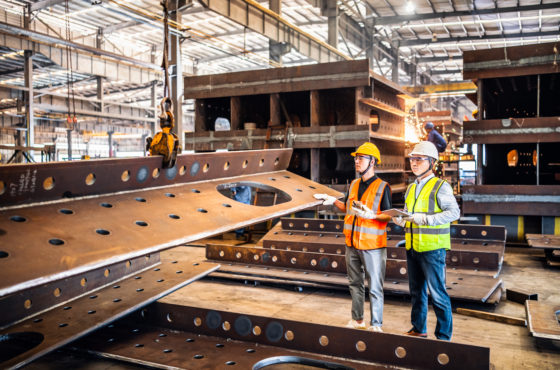Our 70,000 members and future members work in more than thirty engineering fields, with multiple specialties. While we all have seen the marvels of construction work by civil engineers or the rockets of aerospace engineering, other fields await your discovery. Look at our video (in French) to know more.
The diversity of engineering activities may surprise you. Let’s discover them!
Aerospace engineers are involved in the design, development, testing, production, and maintenance of aircraft (e.g. airplanes, helicopters, and unmanned aerial vehicles) or space vehicles (e.g. space shuttles and rockets) and their components (parts and systems). In research or the management of complex high-tech projects, their tasks include the aircraft’s design and the calculation of flight trajectories.

Agri-food engineers work at the crossroads of engineering and biology. They design, manage and maintain infrastructure, machines, processes, and systems from the farm to the factory to transform plants and animals into food. Their priorities are the good management of resources, food quality and safety.

The agri-environmental engineers seek to increase a farm’s agricultural yields while limiting its impact on the environment. With their dual expertise in biology and agriculture, they manage the performance of agricultural infrastructure (buildings, machinery, and automation of activities) and resolve problems related to pollution, resource management, and the food chain.

Food engineers create food manufacturing equipment and processes in compliance with hygiene, conservation, and distribution standards. As a bridge between the agricultural and processing sectors, they design the food products that end up on our plates.

Nothing escapes the expert eye of the building engineer: foundations, structure, mechanical and electrical systems, insulation or ventilation, all in compliance with current standards. Working closely with architects, planners, and contractors, building engineers ensure that plans, costs, and deadlines are respected on commercial, industrial, institutional or residential sites.

Biomedical engineers design methods and devices essential to health professionals and their patients: diagnostic and medical imaging equipment, intelligent body probes, operating robots, pacemakers, rehabilitation equipment, orthoses or prosthesis, and many others.

This forward-looking field of engineering makes the most of technology and applied biology to design real solutions to problems affecting ecosystems. This engineer specializes in environmental, soil or water engineering, among other fields, and creates sustainable systems with responsible resource management.

Biotechnology engineers spend a large part of their time in the laboratory, researching and developing innovations to be applied in various fields: the reduction of pollutants and pesticides in agriculture, the manufacture of new pharmaceutical treatments or the creation of new substances to replace chemicals in industry.

The goal? To optimize the use of wood as a construction material, particularly in environmentally responsible buildings. Wood engineers develop new, high-performance, environmentally friendly products such as furniture and flooring, and find new uses for this renewable resource (energy source, biorefinery, etc.). This specialty differs from that of the forestry engineer, who have their own professional order.

Refining, recycling, and manufacturing of drugs, cosmetics or paper: the applications of the work of chemical engineers are varied. They are involved in the development of product transformation processes as well as in the operation and monitoring of chemical facilities, all in compliance with environmental and safety standards.

Civil engineers collaborate with architects in planning projects, validate calculations, and determine the right choice of materials. As a leader on construction sites, they are responsible for managing major construction projects and taking all the economic, environmental, and social dimensions into consideration.

At ease with the development of studies, plans, and specifications, the construction engineer is on-site to supervise the work and collaborate with stakeholders (architects, clients, and specialized professionals) in all project phases. They ensure that environmental standards are satisfied, as well as the health and safety of site personnel.

Water engineers analyze municipal or industrial water management facilities and infrastructures. As such, they play a crucial role in commercial and residential waste water management. In addition to ensuring the proper functioning of water systems, they implement mitigation solutions to protect the environment and public health.

The role of electrical engineers is to design and optimize electrical circuits and systems for the operation of devices in compliance with established standards. In electronics, they work in automatic controls, telecommunications or on specific aspects of aeronautics and computer science. The electronics specialization focuses on the production, transmission, distribution, and use of electrical energy.

Specialized in electricity, instrumentation and mechanics, electromechanical engineers design, build, and ensure the proper functioning of industrial or manufacturing systems such as motors, vehicles, power transformers, wind turbines, rolling stock or automatons. Their tasks combine theory and practice directly in the field.

This field profession aims to develop and use natural resources responsibly. The geological engineer’s studies also help protect buildings and people from landslides, avalanches, and other soil-related natural disasters. This expert is often found in the mining and exploration sectors or in geotechnical studies.

At the crossroads of geography, software engineering, aerospace, and surveying, geomatics engineers design systems that observe, measure, and map territories. They also build systems that process and disseminate reliable and high precision geospatial data, which is then used to make informed decisions for developing and protecting the areas studied.

Through continuous process improvement, industrial engineers aim to increase factory performance and profitability, employee safety, and product quality. Versatility is their key asset: they know the machines and manufacturing processes as well as the labour and raw material requirements.

With their generalist expertise, computer engineers design, install, and program custom-made networks and systems to optimize the performance of companies and other public or private organizations. They work on components such as processors, memory, drives, robots, assembly lines, or anything that requires some form of automation.

After an in-depth analysis of needs, software engineers design, install and control the quality of interfaces, software, websites, applications or any other digital product under their responsibility. Their work requires a good grounding in science, mathematics, networking, and digital information security.

Essential to industry, mechanical engineers design, install and maintain vehicles, turbines, machines, and other engines used to produce energy, goods and services. In the building sector, they focus on heating, ventilation and air conditioning systems or elevators.

The cross-sectional knowledge of mechatronics engineers gives them an overview of the project to integrate the different technological components optimally. Their tasks combine equipment handling with theory and practice and numerous calculations and studies.

Materials engineers often work in research and development, and design products from various materials: stone, concrete, asphalt, steel, ceramics, plastics, wood, electronic and magnetic materials, biomaterials or composites. They also participate in designing innovative materials, such as “intelligent” components, and select materials from a sustainable development perspective.

Materials and metallurgy engineers develop alloys or composite materials and manufacturing processes for the manufacturing industry. Their research contributes to manufacturing machinery, infrastructure, and objects, mainly composed of metals such as steel and aluminum.

Microelectronics engineers design, manufacture, and program the small microelectronic components needed to power the nanotechnology of today and tomorrow. Their work is necessary for the functioning of our GPS, smartphones, and other cameras, but also serves the progress of computer science, medicine, pharmaceuticals… In short: microelectronics is everywhere!

Mining engineers conduct studies before a mine is put into operation in a specific territory. After that, they oversee the extraction and optimal processing of minerals while respecting the safety of personnel, environmental standards, and the project’s financial objectives. Their expertise in soils also leads them to collaborate in the realization of major civil engineering works like subways, hydroelectric structures or networks, roads, and tunnels, for example.

Like industrial engineering, the operations and logistics engineer’s specialty is the (re)structuring of a company to optimize the profitability and safety of its operations. The tasks of these types of engineers consist of anticipating and planning the management of operations, particularly supplies, and transportation. They design or develop systems or processes and find opportunities for continuous improvement.

The physical engineer bridges the gap between scientific research and industry to design advanced technologies that use the principles of physics such as light, waves, X-rays, radiation, or electromagnetism.

Automated production engineers design various complex devices to solve industrial problems on production lines. Their tasks consist of setting up efficient and safe systems capable of supporting the personnel working in the facilities.

The robots that robotics engineers design are everywhere: biomedical instruments, aeronautical systems, computer security and telecommunications equipment, artificial intelligence and industrial automation systems, and many others. With knowledge from many areas of engineering, they design solutions that incorporate the latest technological innovations.

Explore the different possibilities and find a “Place for you” in engineering!